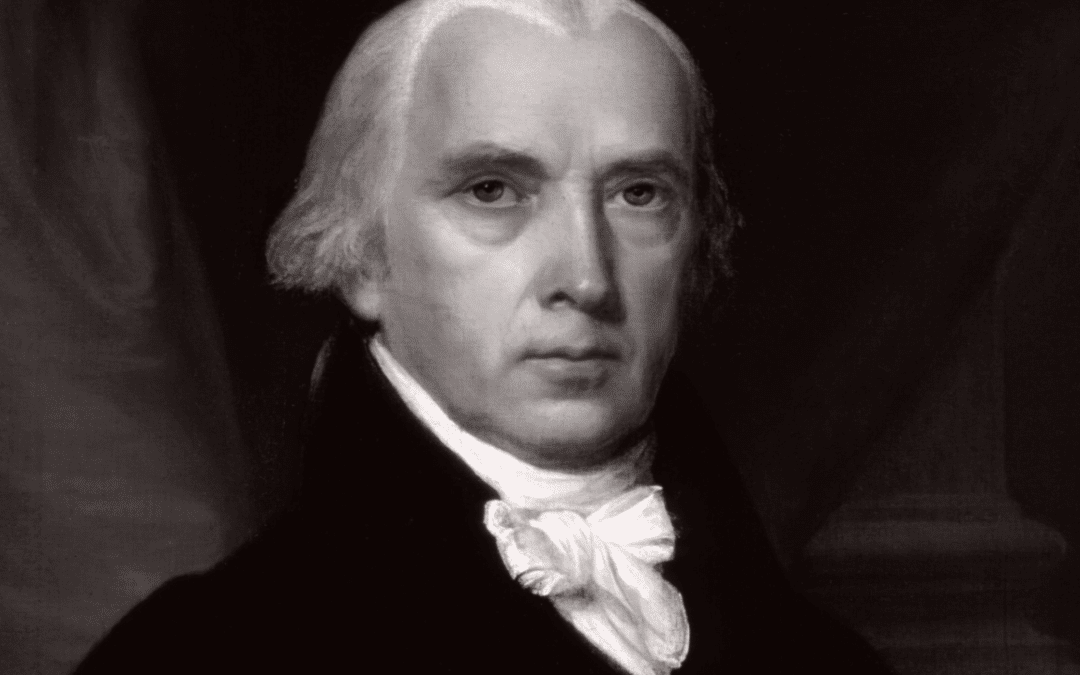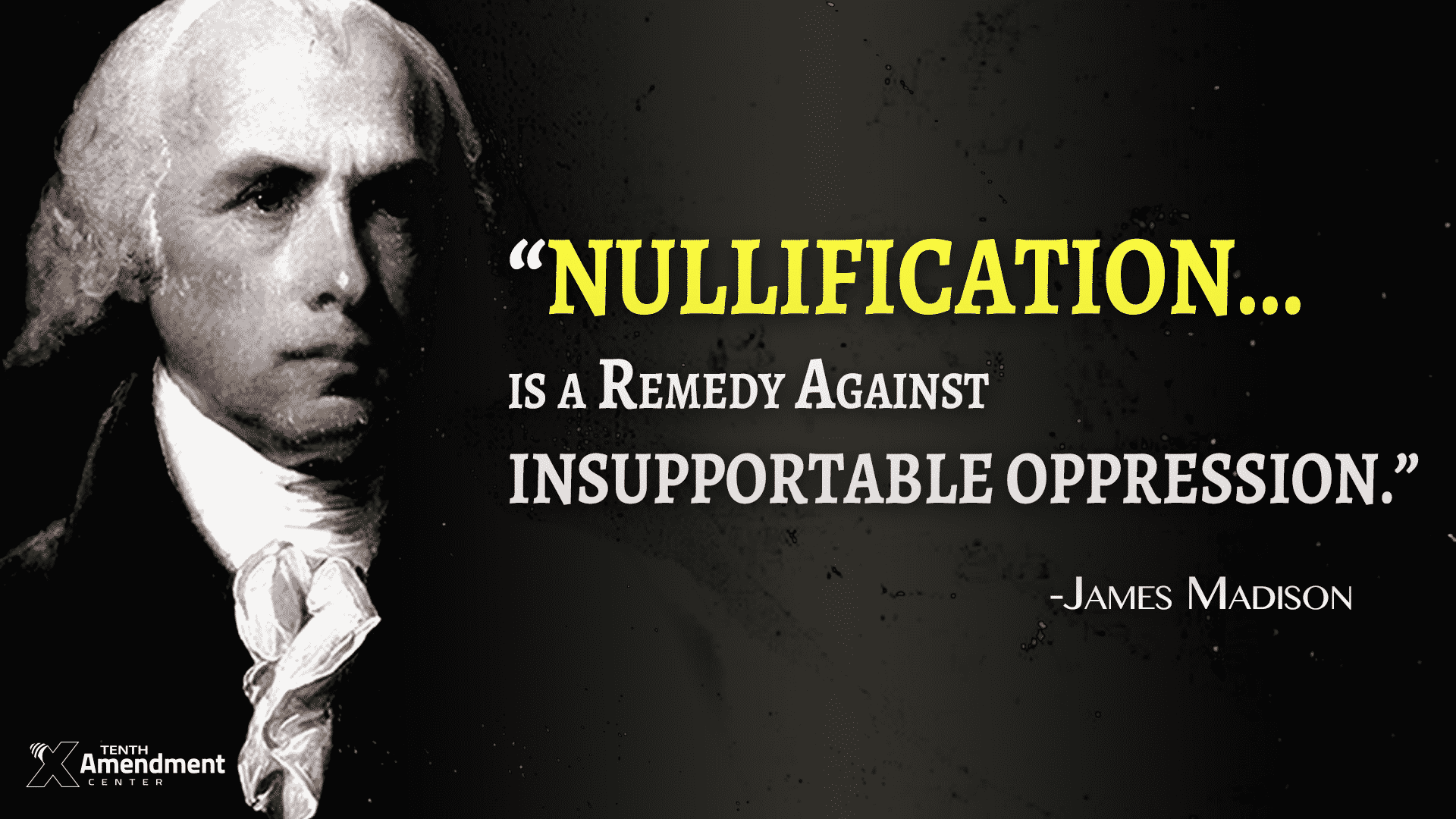
Nullification

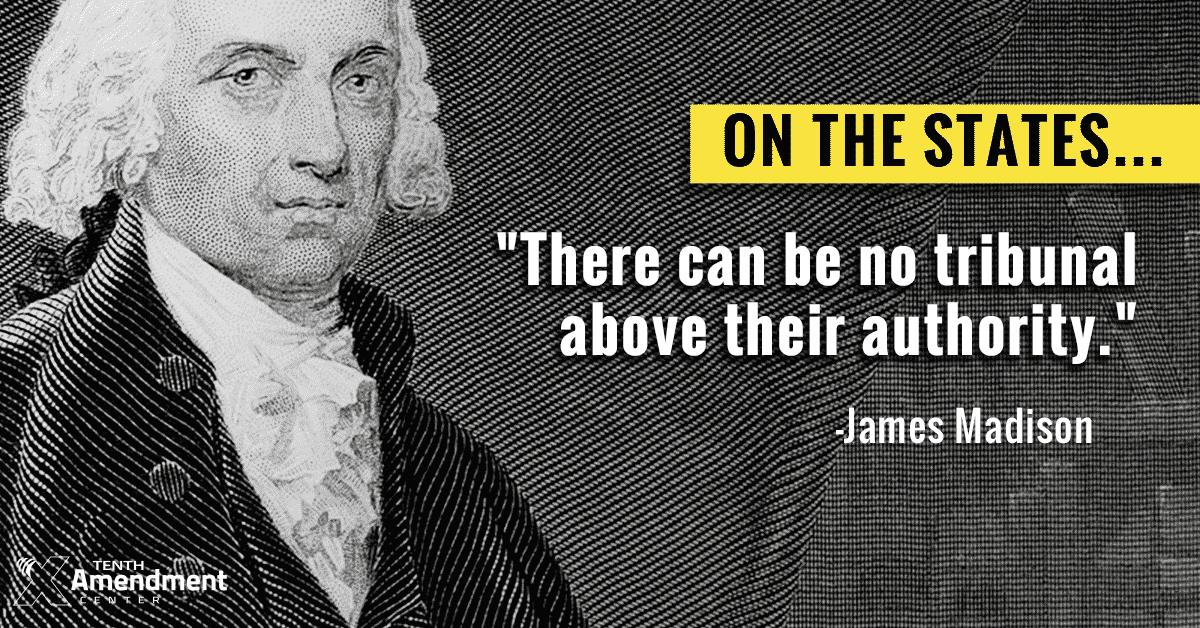
Mainstream Media Gets the Supremacy Clause and Nullification Wrong. Again.
This is featured in today’s Tenther newsletter, which everyone in the nullification movement gets daily or weekly. Be one of them – and Become a member here to support the TAC. Last week, an Associated Press reporter interviewed me about a Texas bill that...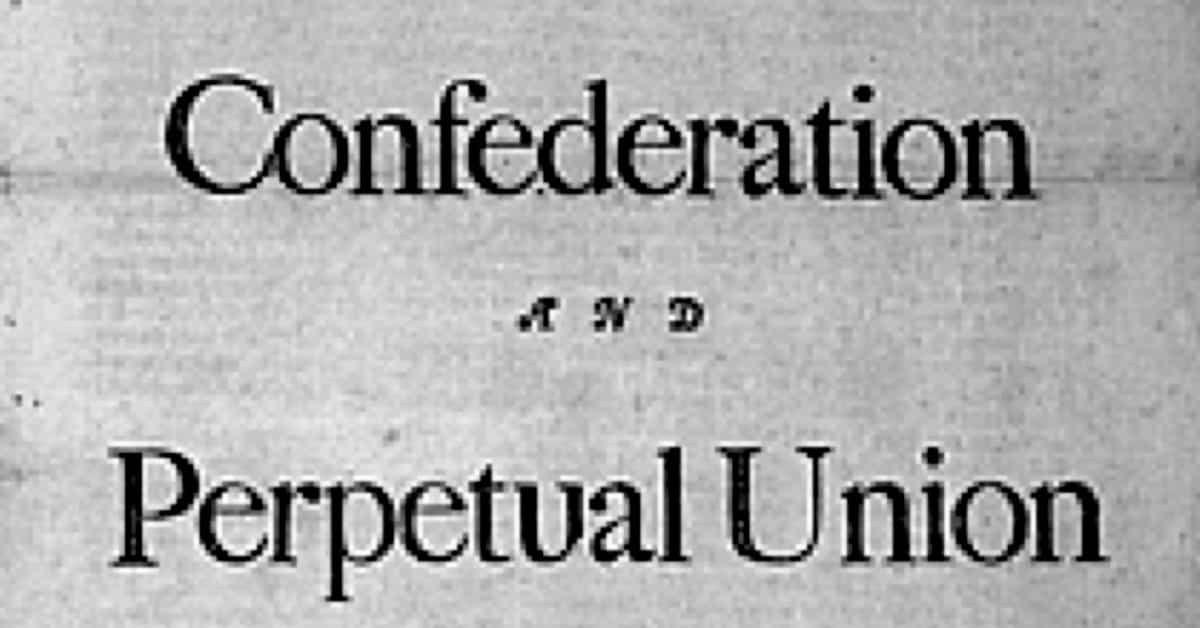
A Nullification Lesson from the Articles of Confederation
The problems facing the United States under the Articles of Confederation provide a nullification lesson for today. When states refuse to cooperate, the central government can’t get a whole lot done. Under the Articles of Confederation, the Congress could not...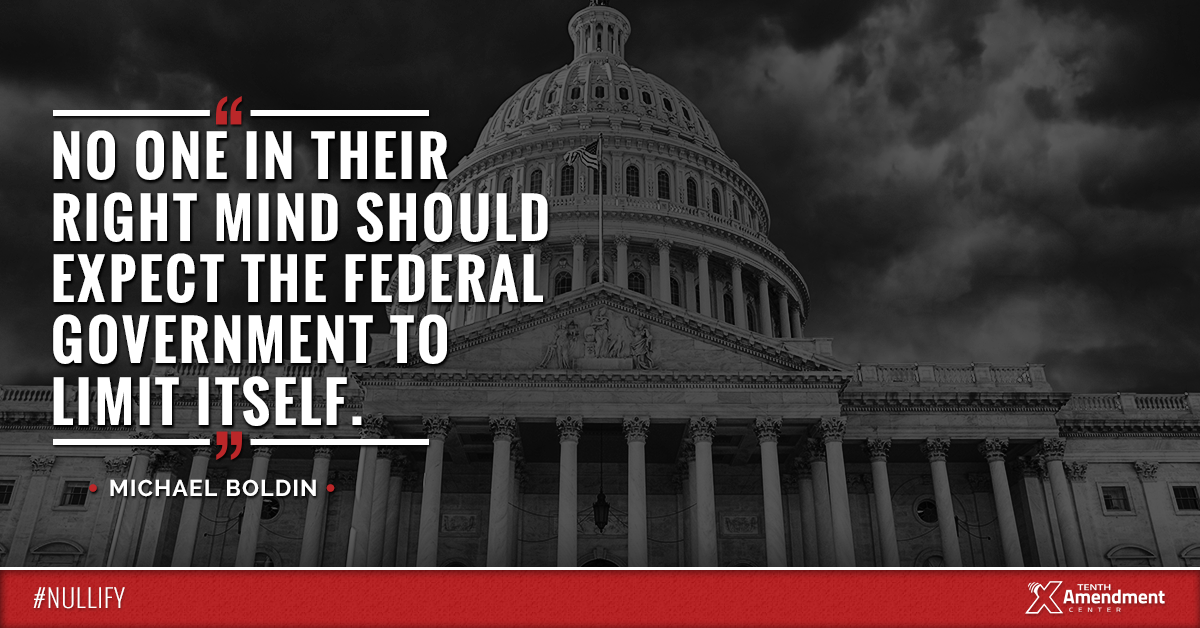
The Founders’ Word: Void
When it comes to limits of federal power under the Constitution, the view of many Founding Fathers fits under the same theme. That is, federal acts outside of the Constitution are null and void. Oliver Ellsworth, the Supreme Court’s third Chief Justice, put it this...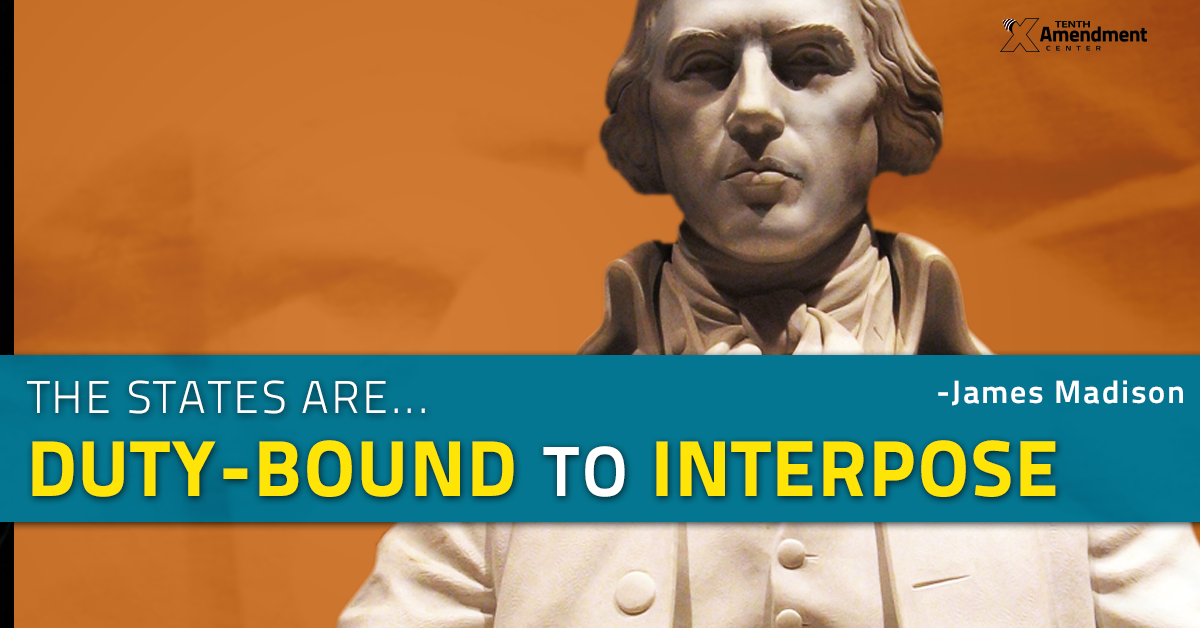
This Week in History: Madison’s Virginia Resolutions Pass in 1798
By December 1798, the United States was in a full-blown constitutional crisis, and James Madison and Thomas Jefferson were stealthily leading the fight to push the federal government back within its prescribed limits. During the summer of that year, Congress passed...